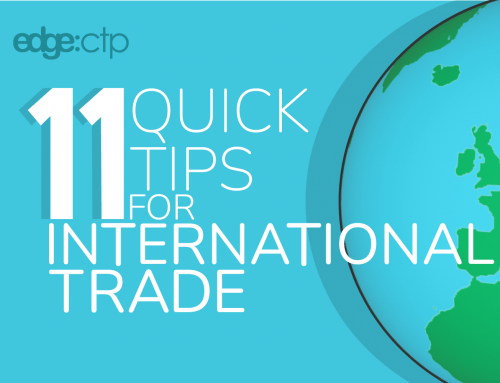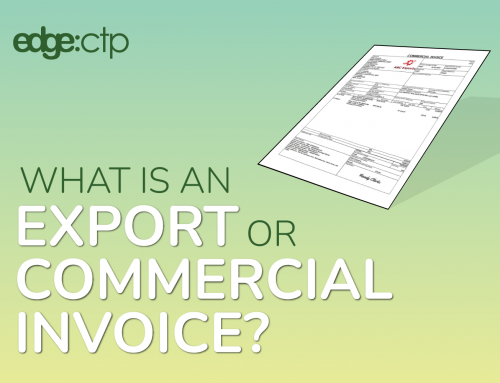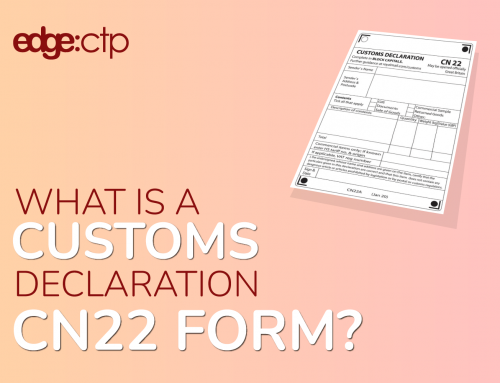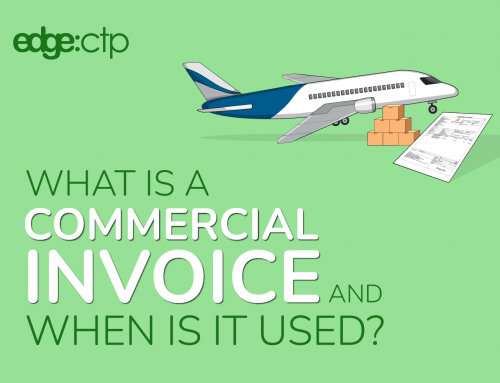Trade Mission:
Before exporting your goods and/or services to a particular country or market region, it is vital to perform a minimal amount of market research for your product/service. As part of the research is to visit the region to find out, first hand, if the research done remotely is correct when in the market. Trade missions are an organised way to visit (in person) the region you wish to export to and meet with key personnel and other market participants, who will make market entry easier. The objective of the visit is to gain an understanding of the market and if it is correct for you, your company and your product/service.
Ask An Expert
Discussion with renowned global trade expert Murdo Beaton and Abdul Mann, creator of the cloud-based export solution EdgeCTP.
Geoff:
Should I visit the country I’m exporting to?
Murdo:
Yes, it is almost a fundamental requirement to visit the country you intend to export your product to. In today’s global market a lot of business is done through intermediaries. These are professional intermediaries that come in the guise of distributors or agents. It’s important to visit with them and to identify exactly their position in the market, to get to know them. To make them part of the team. Hugely important.
Even if one is not dealing with distributors or agents, if one is dealing directly with an end user in a foreign market, it’s even more important to have face to face contact on a relatively regular basis with these end users. Because making yourself present in the market is the best form of advertising that your company can get, to get yourself known in the marketplace.
Yes, buyers like to know the company that they are buying their product from but they also like to see the face of that company, and as a business leader, or as a sales director, it’s massively important to visit the foreign market.
Abdul:
Not only that but I guess, visiting these foreign markets is cheaper, due to cheaper airline tickets etc., and the ability to be able to understand the cultural differences allows you to feed that back into the product you’re creating or created, so it’s valuable product market research.
Murdo:
Correct. If you’re not able to visit the market for one reason or another, it’s not always easy to get your end customer to come and see you, but if you’re dealing with the distributors and agents then it might be easier to get them to visit you. Again, the objective is to make these intermediaries an extension of your own business.
Abdul:
Build a relationship, build trust…..
Murdo:
Building a relationship, building trust, building confidence. In the whole supply chain.
Abdul:
What about the situation Murdo where you get somebody who calls you out of the blue? You’re in your office, you’re in the factory, you’re producing your widget. You get a phone call, it’s a foreign buyer and he says he’s found out about you through a friend or the internet or whatever. He’d like to buy your widgets etc., and you’re sending it to Bolivia or wherever. Would you need to go to Bolivia or would you just send it?
Murdo:
(Laughs) Well, when you get an enquiry like that I would say, yes of course be courteous and deal with the enquiry initially in a courteous manner, but don’t jump out of your chair and run down to your bank manager and say you’re going to be paying off the overdraft within the next six months. Because business doesn’t happen like that. So, these types of enquiries that come in from out of the cold, we don’t know at this stage if they’re genuine or not. So, we have to research them and we have to identify their source. We have to research their source, albeit we’re researching the source from an external point, but we can still do that. We can find out enough about the source o this enquiry to give us confidence in: “Is this worth following up or should we dump it because it’s just going to waste our time?” But, the main thing I would say is, be polite with these enquires. Don’t just shrug your shoulders and say you can’t be bothered with it because you don’t know who they are. Don’t do that.
Abdul:
So you quote them happy and they’ve come to a point where they’ve said: “I’d like to have the goods.” and you’re ready to send them the goods, should you visit the country or just send them the goods and visit Bolivia when the opportunity arises?
Murdo:
Assuming you’ve researched the source of the enquiry, and your research + subsequent interaction confirms the deal is likely to offer you substantial potential, then I would say visit it. If it doesn’t, but it’s one that you could start developing and may progressively offer you that, then you don’t need to visit the market immediately. You can start culturing this relationship from an external point. But if the potential at the very immediate point looks like being hugely exciting then maybe there is merit in thinking of visiting the market.
Abdul:
Okay, that’s on the back of a confirmed order Murdo. Now how about on the back of wishing to grow your business into external, overseas markets, and as part of your market research you want to, in person, check your preliminary market research results. Then would you visit the market/country?
Murdo:
Definitely. Going into the market will teach you a lot that you’ll never get remotely or from just talking with others in your home market.
Abdul:
So what’s the best way to go and visit in the market to qualify your research and potential customers? Trade missions?
Murdo:
Yes, you could do-it-yourself (DIY): get the visas (if required); book travel; hotels; transfers; arrange meetings etc. I’d only recommend the DIY approach if this is NOT your first visit and you’re going on a follow-up or you have pre-arranged appoints with customers etc.
Instead, the most sensible thing to do is go on a trade mission, as you suggested.
Abdul:
Why go on a trade mission and what are the benefits?
Murdo:
A trade mission is a collectively organised business trip (mission) by a group of business people from one country to another country. Usually, organised by Chambers of Commerce, Department of International Trade, or other government agencies or membership organisations for the express purpose of gaining in-market contacts and business potential. Hence, as a business, you’d join a trade mission going to a particular country, where different sector businesses will accompany you too.
The benefits of a trade mission are:
- A professionally organised business trip (travel, accommodation, transfers etc.)
- Schedule confirmed with potential clients + key market participants
- Venues are usually high profile government institutions to attract maximum attendance of in-market clients, intermediaries and advisors
- Likelihood of meeting with high-ranking officials to get yourself know in the market quickly and easily at a senior level
- Cost effective, because of the bulk booking and local knowledge available to the organisers of the trade mission, it’s cheaper than a like-for-like DIY approach
- Concierge service by the organisers to helping you reach your in-market objectives e.g. make hard to get appointments possible because of the government level gravitas of the organisers
- Other businesses on the missions are a great sounding board for ideas, pros + cons discussions and lessons learnt wisdom
Basically, if you’re new to exporting and want to learn more about a potential market that you’ve been researching to enter, then your first port of call should be to your local chamber of commerce, business association or department of international trade, and get onto a trade mission to the region. It’s the best way to get your market research validated + gain experience BEFORE you start to export and grow into the market.
Geoff:
I hope you enjoyed this. If you’d like more information on international trade, go to www.edgedocs.com.






